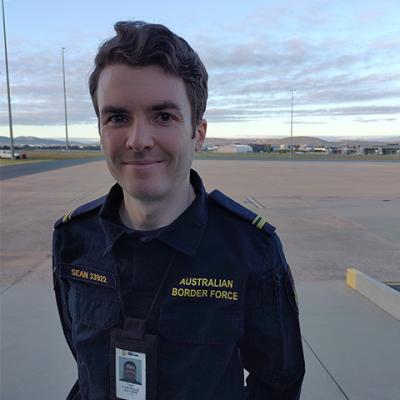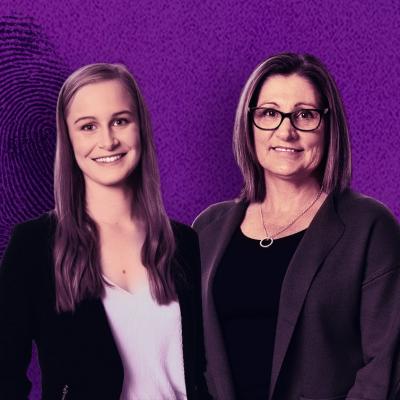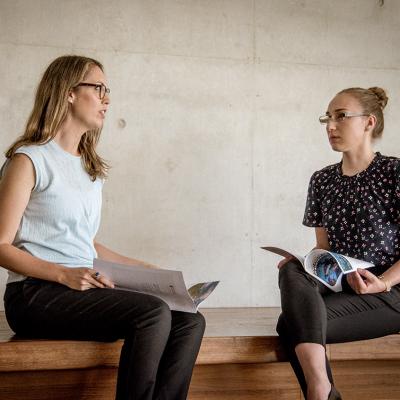Prevent crime and promote justice with a degree in criminology and subsequent career in criminal justice.
There are many fascinating avenues this field of study can take you down, with jobs in criminology varying from judicial to forensic. Some require exceptional interpersonal skills, while others focus more on the ability to apply logic and investigative talent. It’s therefore important to think about your strengths when considering the right criminology jobs for you.
Let’s take a closer look at a few criminal justice degree job outcomes.
Case manager
Case management is a community-focused criminal justice career avenue. Case managers working in community corrections are vital to public safety and are responsible for managing people serving orders such as probation or parole in the community. Case managers are agents of change who assist people to address their offending behaviour and encourage positive life changes.
What does a case manager do?
Case manager duties include:
- working with people to identify triggers which could lead to reoffending
- collaborating with stakeholders such as police and corrections staff to better support and monitor offenders
- offering guidance and advice
- updating the court on the progress of offenders
- connecting offenders with community support groups and services.
Skills needed for case management
Case managers need a range of specialist skills with a focus on communication and a deep knowledge of the correctional system. These are the skills needed to thrive as a case manager:
- an in-depth understanding of the correctional system and its processes
- the ability to problem-solve
- strong listening skills
- an aptitude for collaboration
- clear communication
- conflict resolution
- critical thinking capabilities.
Meet Amber, a case manager for Court Link
Amber graduated from UQ's Bachelor of Criminology and Criminal Justice (Honours) in 2019 and now works as a case manager for Court Link, an integrated court assessment, referral and support program for defendants on bail.
Amber spends her days assessing the needs of participants in the program, working collaboratively with them to create a case plan and coordinate referrals to community-based services for support and assistance. She monitors participants judicially and provides updates to the court on their progression.
“Our work aims to enhance participant’s self-esteem and motivation to promote their rehabilitation by highlighting the strengths of each individual and by utilising therapeutic jurisprudence.”
Amber explains that the Bachelor of Criminology and Criminal Justice prepared her for her current role by providing knowledge of contemporary crime problems and cultivating the skills she needs to critically appraise complex information.
"The Bachelor of Criminology and Criminal Justice has given me a nuanced understanding of the various inter-agency parties involved in responding to crime and maintaining community safety, as well as how cultural, social and historical contexts can be intricately linked to crime and vulnerability."
Since this article's original publish date in March 2022, Amber has moved into a role as a Senior Guardian with the Office of the Public Guardian (OPG), where she is responsible for advocating for the human rights of OPG clients, their access to services, independence and choice as part of a supported decision-making model.
Court officer
Court officers, also known as court attendants or court orderlies, are integral to ensuring court proceedings run smoothly. They work in the office and in the courtroom, upholding court conduct and liaising with the community.
What do court officers do?
The responsibilities of a court officer are varied and include:
- processing and managing court documents
- engagement with the public, police and legal professionals
- calling witnesses to the stand and administering the oath
- keeping order during court proceedings
- acting as a point-of-contact for jurors.
Skills needed to be a court officer
Court officer jobs require a comprehensive understanding of the principles and processes of the criminal justice system. Court officers are often trusted with highly confidential information and so soundness and maturity of character is particularly valued in this position. To succeed as a court officer, you would need to demonstrate:
- strong and clear communication
- organisational skills
- professionalism
- an aptitude for leadership.
Meet Sean, a Senior Border Force Officer with the Australian Border Force
Sean graduated from UQ's Bachelor of Criminology and Criminal Justice (Honours) in 2019 and is now a sworn member of the Australian Border Force (ABF).
Sean explains that a Border Force Officers’ duties can range from the processing of goods and people crossing the Australia border at customs, to migration compliance activities and functions.
Border Force Officers typically work at airports and seaports, or small district offices along Australia’s coastline. There are also opportunities to work overseas in airport liaison positions at major international hubs or as Marine Tactical Officers aboard patrol boats.
As a Senior Border Force Officer, Sean and his team manage the Canberra District Office.
“We provide customs services and advice to the ACT region and broader diplomatic community. In addition to this, we are responsible for facilitating flights arriving and departing from Canberra Airport or RAAF Fairbairn,” says Sean.
Sean’s day-to-day duties involve identifying potential risks to the border and resolving or mitigating these. He also provides advice and assistance on the import and export of goods.
Sean commends the ABF’s commitment to professional development for their employees.
“There are countless training opportunities to equip me with the skills to examine bags and cargo, assess threats to the border using assorted technologies such as x-ray or trace detection equipment, collect any unpaid duty and taxes on various goods, or facilitate their release to the client.”
He says the Bachelor of Criminology and Criminal Justice (Honours) has helped him to think critically about the information presented to him when processing goods and travellers.
“By learning the different criminology theories and techniques such as procedural justice, this allows for a greater connection to a client, passenger or alleged offender so that the most appropriate and successful outcome can be obtained,” says Sean.
"But it also leads to curiosity in not taking things at face value and seeking what is true through multiple sources, so that sight of the bigger picture is maintained.”
Criminal justice degree jobs with the ABF can be varied and exciting. Explore the breadth of careers available with the Australian Border Force.
Intelligence officer
The role of the intelligence officer can feel as though it’s shrouded in mystery, and for good reason. Intelligence officers identify, interpret and analyse criminal threats to national security. They follow strict security clearance protocols and procedures and can work for a range of intelligence agencies including the Australian Security Intelligence Organisation (ASIO), the Department of Defence, the Australian Federal Police, and the Department of Home Affairs.
The process to become an intelligence officer differs depending on what agency you choose to work for. However, each will require intensive security checks, interviews, assessments and specialised training. UQ’s Bachelor of Criminology and Criminal Justice aims to prepare potential candidates for these processes and a subsequent career in intelligence.
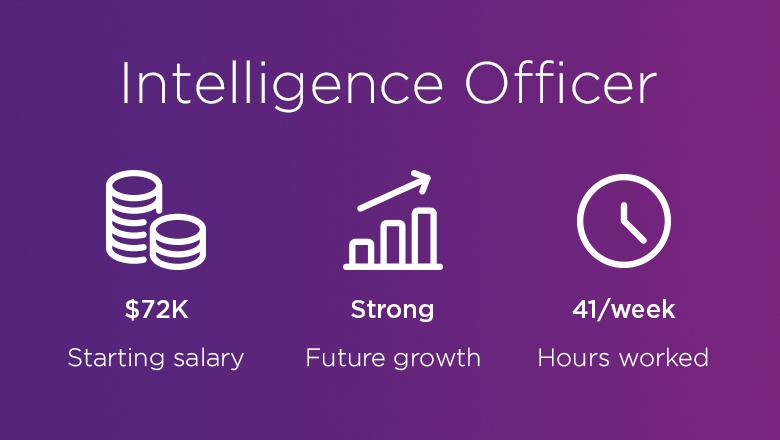
Information sourced from Payscale, Your Career and Labour Market Insights.
What does an intelligence officer do?
While the ins and outs of the role may be confidential, the general duties of an intelligence officer include:
- gathering information and sources related to potential threats to national security
- determining the reliability of sources and information collected
- carrying out threat and risk assessments
- organising and analysing data
- travelling internationally to seek intelligence.
Skills of an intelligence office
Intelligence officer skills range from those that are highly specialised, to solid interpersonal skills. Both are extremely important to the role and include:
- data analysis
- problem-solving
- critical thinking
- report writing
- strong and confident communication
- teamwork
- integrity
- objectivity
- adaptability
- ability to thrive under pressure.
Police detective
Police detectives are critical to ensuring criminals are held accountable for their actions. If you’re wondering how to become a police detective, it begins with undertaking a role in uniform policing. This first involves passing an entry exam and series of assessments. You will need to prove your initiative and aptitude as a police officer to be considered as a police detective.
A police officer is one of the few criminal justice careers you do not require a university degree to apply for. However, it can help to put you ahead of other candidates in the competitive application process and accelerate your career progression to police detective.
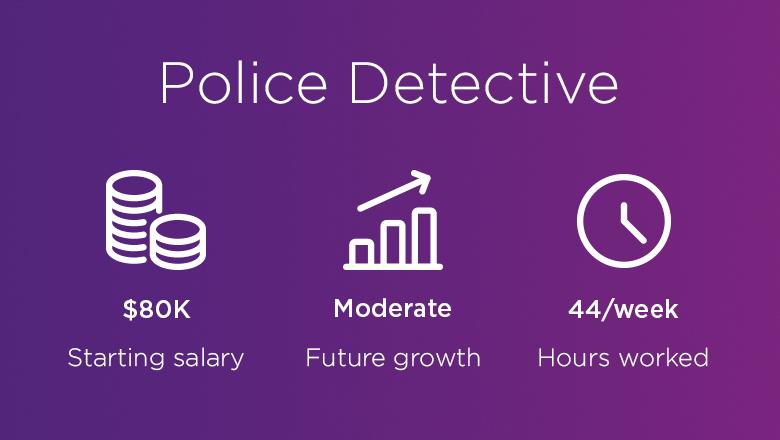
Information sourced from Payscale, Your Career and Labour Market Insights.
Police detective duties and responsibilities
Police detectives are responsible for the investigation of serious crime including homicide, organised crime and sex offences. On a day-to-day basis, this may include:
- visiting crime scenes to obtain evidence
- maintaining order and safety within the community
- arresting and interviewing suspected offenders
- investigating complaints made by the public or accidents where there is cause to suspect criminal behaviour
- writing up reports
- assisting victims of crime.
Skills needed to be a police detective
Many police detective skills are unique to the profession, including knowledge of criminal legislation, investigative methods, interview techniques, and proficiency in report writing. However, there are also broader skills needed to excel as a detective, including:
- problem-solving skills
- personal and professional integrity
- an eye for detail
- critical thinking skills
- social perceptiveness
- level-headedness
- the ability to cope with confronting and distressing situations
- competent written and verbal communication skills.
Want to know more about the types of careers you can pursue with a university degree in law, humanities and social sciences?



